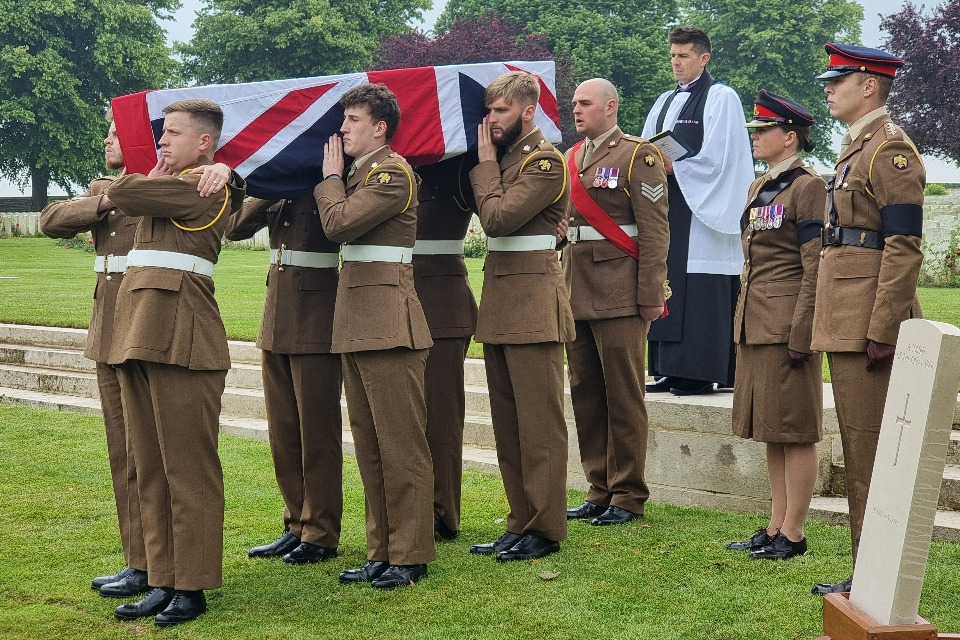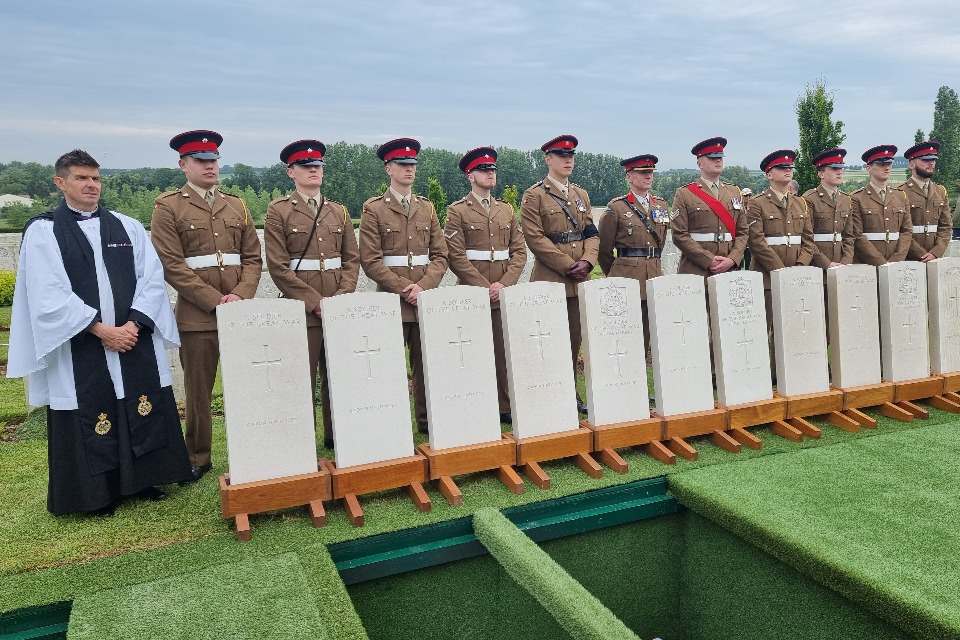Ministry Of Defence

The men were commemorated in three burial ceremonies throughout this week:
- On 18 June, one soldier of an unknown regiment was buried at the Commonweath War Graves Commission (CWGC) Caterpillar Valley Cemetery, Longueval.
- On 19 June, one soldier of an unknown regiment was buried at CWGC Serre Road No. 2 Cemetery .
- On 20 June, one unknown officer and two unknown soldiers of the Suffolk Regiment, one unknown soldier of the Royal Fusiliers and one unknown officer and seven unknown soldiers of unknown regiments, were buried at CWGC Wancourt British Cemetery.
All services were organised by the MODs Joint Casualty and Compassionate Centre (JCCC), also known as the MOD War Detectives.
The soldier buried at CWGC Caterpillar Valley Cemetery was discovered in a freshly ploughed field on the edge of High Wood, Longueval. The soldier buried at CWGC Serre Road No. 2 Cemetery was discovered by tourists walking by another ploughed field near Beaumont Hamel. The remains of both men were recovered by the Commonwealth War Graves Commission.

Members of the Royal Anglian Regiment carry the coffin to the graveside at Serre Road No. 2 Cemetery (Crown Copyright)
Due to the extensive fighting in both areas by multiple battalions of different regiments over a long period, the list of those missing is extensive. Though the General Service buttons and ammunition found alongside the remains indicate the men were of Commonwealth origin and unlikely to be officers, no artefacts could identify individuals. With no way to distinguish these men from the hundreds recorded there as missing, both were buried as unknown soldiers, known unto God.
The 12 soldiers buried in CWGC Wancourt were found in 2019 during construction work near Monchy-le-Preux and were recovered by the CWGC. It is likely they were originally buried in a battlefield cemetery, because the location was immediately behind the area where frontlines stabilised at the end of the First Battle of the Scarpe (9-14 April 1917). After the war it is likely the battlefield cemetery was accidentally overlooked when other such cemeteries were moved.

MemberS of the Royal Anglian Regiment with the 12 headstones of the unknown soldiers being buried at Wancourt British Cemetery (Crown Copyright)
Some of the men were found with Suffolk Regiment and Royal Fusiliers artefacts, but unfortunately a majority could not be attributed to a regiment. It is likely they were killed between April and August 1917. Despite many attempts, DNA samples taken from the remains could not provide information to identify any of the men. Sadly, they have been buried as unknown soldiers, known unto God.
Nicola Nash, MOD War Detective said:
Whilst it is disappointing that we have been unable to name these men, they have still been afforded a dignified and respectful full military burial. These soldiers are Known Unto God and will be remembered by us always.
The graves will now be cared for in perpetuity by CWGC. Mel Donnelly, Head of Commemorations at the CWGC, said:
Sometimes despite everyones best efforts, the identity of soldiers cannot be determined before they are laid to rest. However, though unknown, these 14 brave soldiers have received a full military burial befitting of their service and of the sacrifice they all made, more than a century after they died.
We will care for their graves, now in three of our cemeteries in France, in
